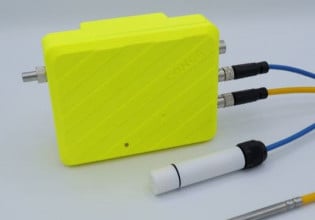J
Hello,
some thoughts on the Great Namer...
Mario has rewritten/suggested the GN to use shared memory rather than sockets, which is probably a good idea - we have the shared memory anyway, might as well use it for everything. Perl can handle shared memory, if we want to keep using it for parsing.
One thing that the Great Namer has to have is per-module configuration. Variables shouldn't be in the config file all in one big list, they should
be divided into sections according to what module they apply to.
That way, we can have two logic engines or two I/O modules of a particular type without their configurations clashing.
Preferably, there should provision for variables to be set not only for a particular module, but also for all modules of a particular type
(basically, defaults). Allowing variables (and points) to be defined in terms of other variables would be good (preferably with fairly late
binding, so that defaults can refer to individualized settings).
Jiri
--
Jiri Baum <[email protected]>
Windows is not popular. Windows is *widespread*. Linux is popular.
_______________________________________________
LinuxPLC mailing list
[email protected]
http://linuxplc.org/mailman/listinfo/linuxplc
some thoughts on the Great Namer...
Mario has rewritten/suggested the GN to use shared memory rather than sockets, which is probably a good idea - we have the shared memory anyway, might as well use it for everything. Perl can handle shared memory, if we want to keep using it for parsing.
One thing that the Great Namer has to have is per-module configuration. Variables shouldn't be in the config file all in one big list, they should
be divided into sections according to what module they apply to.
That way, we can have two logic engines or two I/O modules of a particular type without their configurations clashing.
Preferably, there should provision for variables to be set not only for a particular module, but also for all modules of a particular type
(basically, defaults). Allowing variables (and points) to be defined in terms of other variables would be good (preferably with fairly late
binding, so that defaults can refer to individualized settings).
Jiri
--
Jiri Baum <[email protected]>
Windows is not popular. Windows is *widespread*. Linux is popular.
_______________________________________________
LinuxPLC mailing list
[email protected]
http://linuxplc.org/mailman/listinfo/linuxplc






